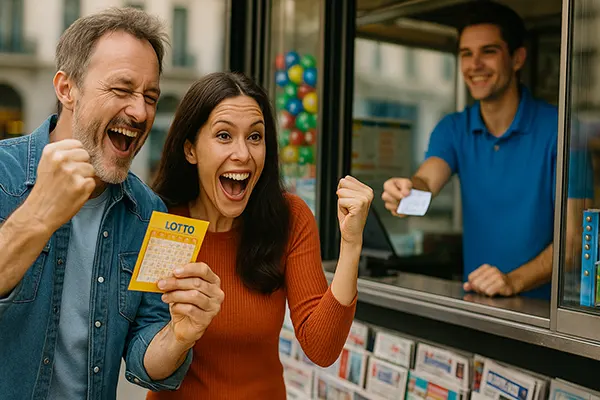
How Lottery Advertising Is Changing in the 2020s: Bans, Influencers, and Social Messages
Lottery advertising across Europe is undergoing a significant transformation. Regulatory pressure, public concern over gambling harm, and the rise of social media have all reshaped how national lotteries and private operators communicate with the public. Countries such as the UK, Sweden, and the Netherlands have implemented stricter advertising controls, while brands are now shifting towards more socially conscious messaging and relying on influencers across digital platforms.
Advertising Bans and Stricter Legal Frameworks
Over the last five years, several European countries have enacted sweeping reforms to curb the aggressive promotion of lotteries and other gambling products. In the United Kingdom, the Gambling Act review of 2023 led to the implementation of a ban on all celebrity and sports personality endorsements in gambling ads, directly affecting the lottery sector. Sweden’s 2024 legislative update introduced a requirement for “moderation” in gambling advertising, now actively enforced with high penalties for violations. The Netherlands went even further in July 2023 by enforcing a near-total ban on untargeted advertising across TV, radio, and public spaces, pushing lotteries to focus on permission-based digital marketing.
These measures aim to reduce exposure among vulnerable groups, particularly minors and those at risk of gambling addiction. Regulators now require that ads avoid portraying gambling as a path to success or a lifestyle improvement, and include clear warnings about potential risks. Lotteries that fail to comply face fines or even temporary licence suspension.
As a result, traditional advertising channels have become less viable, prompting the industry to adopt new digital-first strategies that better align with legal boundaries and social expectations. Transparency, responsible gaming reminders, and player protection mechanisms are increasingly highlighted in marketing campaigns.
The Response from Lottery Operators
National lottery companies and private firms are rapidly adjusting their strategies. Many now focus on long-term brand trust rather than short-term ticket sales. In the UK, The National Lottery has redirected funds to sponsor youth community projects and arts, integrating these into promotional narratives. Svenska Spel in Sweden shifted from prize-centric messaging to themes around shared responsibility and ethical gaming. Meanwhile, Dutch lottery operators have partnered with independent watchdogs to audit their campaigns and verify compliance with ethical standards.
Another emerging approach involves separating branding from direct sales promotions. For instance, operators may run awareness campaigns focusing on where the lottery revenue goes—such as education or health sectors—rather than showcasing jackpots or winners. This helps reduce the pressure on players and reinforces the perception of lotteries as a form of civic contribution rather than entertainment with financial rewards.
This pivot has required extensive retraining of marketing departments, legal consultations, and new creative frameworks. Many advertising agencies specialising in gambling are now repositioning themselves as ethical communication consultancies, focusing on compliance and transparency.
Influencer Marketing and Social Platforms
With traditional broadcast advertising channels becoming more regulated, lotteries have increasingly turned to social media platforms—especially TikTok, YouTube, and Instagram—to engage new demographics. This shift is particularly aimed at millennials and Gen Z, who often consume entertainment through mobile devices and have low engagement with legacy media. Influencers now play a central role in soft branding efforts, even though their participation is also subject to regulatory scrutiny.
For example, UK guidelines introduced in late 2024 prohibit influencers under the age of 25 or those appealing predominantly to younger audiences from promoting lottery products. Similar rules in Sweden require that all influencer partnerships be disclosed clearly, and that content avoids any implication of gambling being a lifestyle enhancer. Despite these limitations, lotteries have found creative ways to work within the rules, such as collaborating with educators or lifestyle figures focused on charity and public benefit narratives.
Moreover, interactive content—such as livestreamed draws, behind-the-scenes charity projects, or Q&A sessions with winners—has proven effective. These formats foster community involvement and present the lottery as an institution of national value, not merely a source of games of chance.
Case Studies in Influencer Engagement
In the Netherlands, the Postcode Lottery launched a campaign in 2025 that featured micro-influencers discussing how lottery funding supported local initiatives in their communities. The content avoided direct promotion but achieved high engagement rates due to its authenticity and civic tone. Similarly, in Sweden, Svenska Spel used documentary-style short films distributed on YouTube to showcase the impact of lottery revenue on youth sports organisations.
Meanwhile, in the UK, a collaboration between a well-known environmental advocate and The National Lottery helped raise awareness about ecological grant projects funded by ticket proceeds. This type of storytelling avoids the pitfalls of glamorisation and instead builds long-term trust among viewers. It also helps regulators view the lottery not as a gambling entity but as a public financier.
Such examples highlight a shift from overt sales tactics to a more editorial, journalistic approach—one that mirrors non-commercial content in tone and delivery, while still achieving brand visibility and positive association.

Shifting Towards Social Messaging and Corporate Ethics
One of the most significant evolutions in lottery advertising is the integration of corporate social responsibility (CSR) into core communication. Operators are no longer just seen as entertainment providers; they are now expected to act as socially responsible organisations with a clear ethical mandate. This trend intensified after the COVID-19 pandemic, which exposed financial vulnerabilities among populations and triggered criticism of aggressive gambling promotions.
Today, many lotteries embed social messaging directly into their campaigns. In Denmark and Norway, operators have added “pause” options in their ads, encouraging viewers to reflect before purchasing. In Germany, lottery bodies partner with public health campaigns, reinforcing messages around financial responsibility and moderation. The goal is to shift the perception from personal gain to collective benefit.
Importantly, messaging now incorporates themes like inclusion, mental health, sustainability, and digital literacy. These subjects reflect wider societal values and help position the lottery as a partner in national development, not just a gaming provider. While these shifts are partly driven by compliance needs, they are also a response to changing public expectations about corporate behaviour.
Public Reception and Measurable Outcomes
Initial data suggests that socially framed campaigns are effective. According to a 2025 UK Gambling Commission report, public trust in The National Lottery increased by 14% over two years following the implementation of ethical branding policies. In Sweden, surveys indicate that over 60% of participants view Svenska Spel as a “socially responsible” organisation, an all-time high. This positive perception translates to higher brand loyalty and willingness to participate in regulated games.
It’s worth noting that some operators have faced backlash for performative ethics, especially when CSR messages were not backed by meaningful changes. Authenticity remains crucial. A CSR campaign that highlights funding of local sports must be supported by transparent financial records and independently verified outcomes, or it risks being dismissed as greenwashing.
Ultimately, the success of socially embedded messaging lies in long-term consistency and transparent alignment between promotional content and actual practices. In this context, advertising becomes a tool not only for awareness but for reputational legitimacy and civic engagement.
